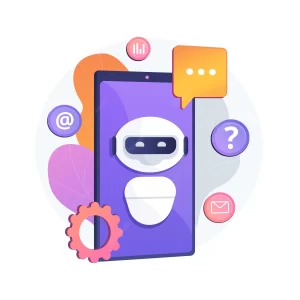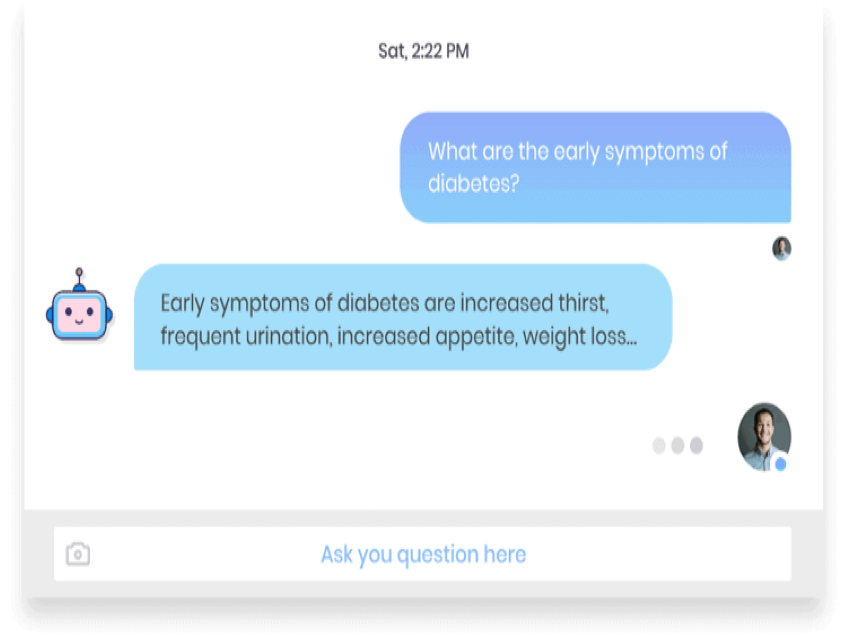Artificial Intelligence (AI) is no longer the stuff of science fiction. It’s here, and it’s poised to change everything about how we do business. The market for AI is not only growing rapidly, but it’s also opening up to more and more players, including small and medium-sized businesses. For example, a chatbot can answer customer queries or give recommendations based on previous buying patterns. So, what exactly is AI? And how can it be used in the online retail business?
Artificial Intelligence (AI) starting to infiltrate our lives and businesses in a big way
 In 2019, it became clear that artificial intelligence (AI) is going to have a significant impact on eCommerce. The technology industry is in the early stages of an AI revolution and many companies are looking at ways they can incorporate this into their operations.
In 2019, it became clear that artificial intelligence (AI) is going to have a significant impact on eCommerce. The technology industry is in the early stages of an AI revolution and many companies are looking at ways they can incorporate this into their operations.
AI is a broad term that covers a wide range of technologies that enable machines to do things that require human intelligence such as visual perception, speech recognition, decision-making and language translation. It often involves large amounts of data being analysed by computers to produce useful insights that humans wouldn’t be able to achieve on their own.
Chatbots are one type of AI technology which has become popular in recent years among brands selling online because they offer several advantages over traditional web forms:
- Simplicity: Chatbots are easy to set up and use, with no coding knowledge required.
- Accessibility: Chatbots work on any platform or device so you don’t need a dedicated website for them.
Machine Learning in Chatbot
In this example, a chatbot can answer customer queries or give recommendations based on previous buying patterns. The bot’s ability to make these predictions is powered by machine learning.
Machine learning is a powerful tool for eCommerce because it can help you understand your customers better and serve them better as a result. Machine learning can help you understand what your customers want, where they are in their buying journey, and what products they might buy next based on their previous purchases or browsing behaviour.
Natural Language Processing in Chatbot
Natural language processing (NLP) is a field of computer science that studies how to build systems that can understand human language as it’s written or spoken. Natural language refers to the way people speak and write, which is complex and full of nuance.
Chatbots that employ natural language processing can also learn from their users’ input. These chatbots may notice if a user is struggling with a particular task. As they gather more information about the user’s behaviour, the chatbot can make predictions about what kind of help he or she needs and offer it in real-time.
Computer Vision
Computer vision is the field of computer science that gives machines the ability to see. It uses image processing and deep learning algorithms to extract information from images and videos, enabling machines to understand their surroundings and carry out complex tasks.
As a technology that’s relatively new and still, in its early stages of development, computer vision has yet to be fully explored by eCommerce companies—but it could present some exciting opportunities for business owners as well as consumers.
AI is not only growing rapidly, but it’s also opening up to more and more players, including small and medium-sized businesses
The market for AI is not only growing rapidly, but it’s also opening up to more and more players, including small and medium-sized businesses.
AI is going to be one of the most disruptive technologies in eCommerce. It has the potential to change the way we live, work, and shop; it will be a major tech trend from 2020 through 2024.
AI is quickly becoming an indispensable tool that can be used by retailers and brands alike to boost their marketing efforts, improve customer service and increase sales conversions.
And so, it’s clear that AI and chatbots are going to be one of the most disruptive technologies in eCommerce. Businesses are now able to employ automated customer service agents to answer any questions or give recommendations based on previous buying patterns. While some might argue that this is taking away jobs from people who would normally do them, others believe that these changes will only make our lives better—and they could even help us save time and money!



